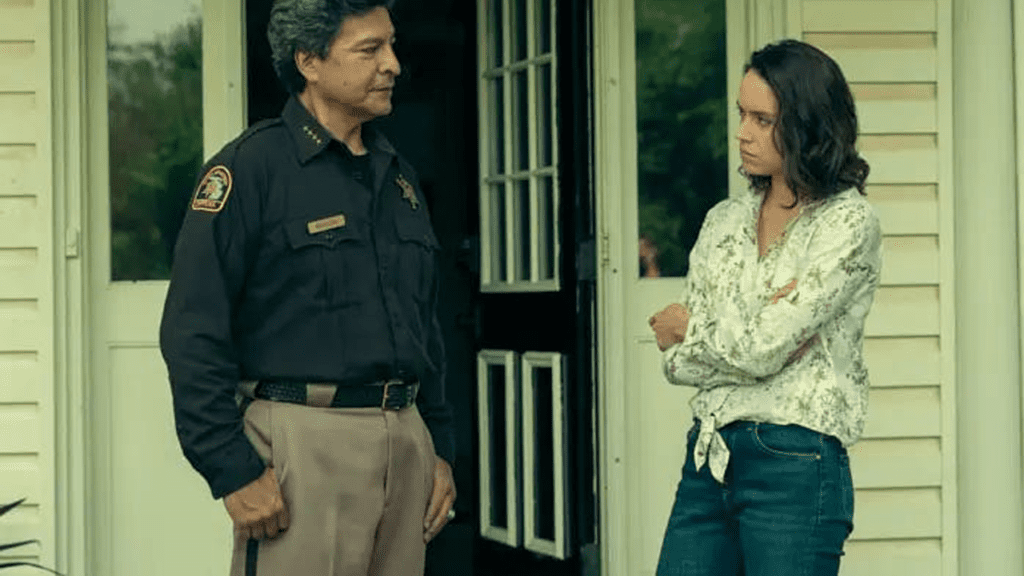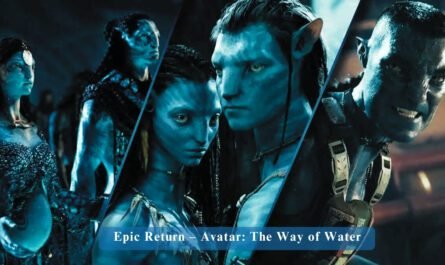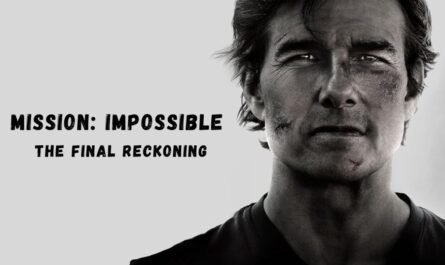As a passionate movie reviewer with five years of blogging experience at the age of 25, I was intrigued by the psychological layers of The Marsh King’s Daughter.
I’ve reviewed everything from big-budget blockbusters to low-key indie gems. But few thrillers have left me as unsettled—and unexpectedly captivated—as The Marsh King’s Daughter. Directed by Neil Burger, this psychological survival drama trades lightsabers for rifles, pulling Daisy Ridley out of her Star Wars legacy and into the role of a haunted woman confronting a terrifying past.
In an era where thrillers are often predictable, The Marsh King’s Daughter manages to tell a story that’s both emotionally complex and grippingly raw. Let’s dive deep into the story, performances, themes, and why this film deserves your attention—even if it’s a difficult watch at times.
Plot Summary: A Life Built on Lies
The story opens with Helena, played by Daisy Ridley, living an off-grid life deep in the wilderness with her mother (Caren Pistorius) and her survivalist father Jacob Holbrook (Ben Mendelsohn). As a young girl (played by Brooklyn Prince), Helena idolizes her father. He teaches her to hunt, fish, track animals, and live off the land. It’s the kind of rugged upbringing most children never experience—but we soon learn that this life is anything but ideal.
From Helena’s childlike perspective, everything seems simple. But there are early signs that something’s off—her mother is quiet, anxious, and seems to flinch at her husband’s voice. The audience sees what Helena cannot: this “unconventional life” is actually a prison.
One day, a stranger arrives. A lost man in an off-road vehicle appears to be searching for directions, and Helena’s mother sees an opportunity to escape. Just as they attempt to flee, Jacob returns and nearly kills the man, leading to a harrowing escape to the nearest police station.
There, Helena’s world is shattered. She learns the horrifying truth: her father had kidnapped her mother years ago and kept her hostage in the woods. Helena was the child born out of that captivity. Suddenly, everything she thought she knew—her home, her father, even her identity—collapses in an instant.
Fast Forward: A Life Lived in Fear

Years pass. Helena has built a new life under a new identity. She has a husband and a child. On the surface, she seems to have moved on. But the past is never far behind.
When Jacob escapes from prison, Helena knows she can’t rely on law enforcement to protect her family. She understands her father better than anyone—and she knows he’s coming. What follows is a chilling cat-and-mouse game through forests, memories, and emotional scars that never truly healed.
This is not just a thriller—it’s a survival story on every level: physical, emotional, psychological.
Daisy Ridley’s Performance: Career-Defining
For those who only know Daisy Ridley as Rey from Star Wars, The Marsh King’s Daughter is a revelation. Gone is the wide-eyed optimism of a galaxy far, far away. In its place is a woman hardened by trauma, yet still vulnerable and deeply human.
Ridley’s portrayal of Helena is layered and fierce. She doesn’t play Helena as a traditional action hero. She’s scared, angry, protective, and often torn between the love she felt as a child and the horror she now knows to be true. It’s one of her most nuanced performances to date.
Brooklyn Prince, who plays young Helena, is equally impressive. She conveys both innocence and intensity, which makes the emotional betrayal hit even harder.
Ben Mendelsohn: A Terrifying Villain
Ben Mendelsohn is no stranger to playing villains, but Jacob Holbrook may be one of his darkest characters yet. He’s not a cartoonish villain. He’s manipulative, charismatic, and quietly terrifying. His twisted love for Helena creates an uncomfortable dynamic that keeps the audience on edge.
Mendelsohn captures the cold calculation of a predator who believes he’s done nothing wrong. And that’s what makes Jacob so disturbing—he doesn’t see himself as a villain. He sees himself as a father protecting his legacy.
Direction and Atmosphere: Isolation as a Character
Director Neil Burger (Limitless, Divergent) brings a sense of claustrophobic tension to the wilderness setting. The forest isn’t just a backdrop—it’s a living, breathing character in the story. The silence of the trees, the crunch of snow, the stillness of the lake—it all adds to the unease.
The cinematography is stunning but never glamorized. It captures the harsh beauty of nature, reminding us that while the forest can be a place of peace, it can also be a prison. Burger masterfully builds suspense through silence, shadows, and subtle shifts in tone.
Themes: Trauma, Survival, and Identity
At its core, The Marsh King’s Daughter is a story about trauma—how it shapes us, how it hides, and how it must be confronted. Helena’s struggle is not just external—it’s deeply internal. She must reconcile the love she felt for her father with the truth of his monstrous actions.
The film also explores themes of inherited trauma. Can we ever escape the shadows of our past? What do we owe our families? And how do we protect the next generation from the pain we carry?
These questions linger long after the credits roll.
Is It Worth Watching?
Absolutely—if you’re in the right headspace. The Marsh King’s Daughter is not light entertainment. It’s a slow-burn thriller that asks you to sit with discomfort. It forces you to think. And in a world full of mindless blockbusters, that’s a welcome change.
For those who appreciate character-driven narratives with psychological depth, this film is a must-watch. It’s not perfect—some scenes feel a bit drawn out, and certain character motivations could have used more clarity—but overall, it’s a powerful, haunting story.
My Final Verdict
As a dedicated movie blogger with half a decade of reviewing experience, I can confidently say The Marsh King’s Daughter is one of the most intense and emotionally charged thrillers of the year. Daisy Ridley proves her range as an actress, Ben Mendelsohn delivers one of his most sinister roles, and the story lingers in your mind long after it ends.
This film isn’t just about surviving your environment—it’s about surviving your past, your memories, and the people who shaped you. It’s dark, yes, but also deeply human.
If you’re interested in reading more blogs like this, click here




